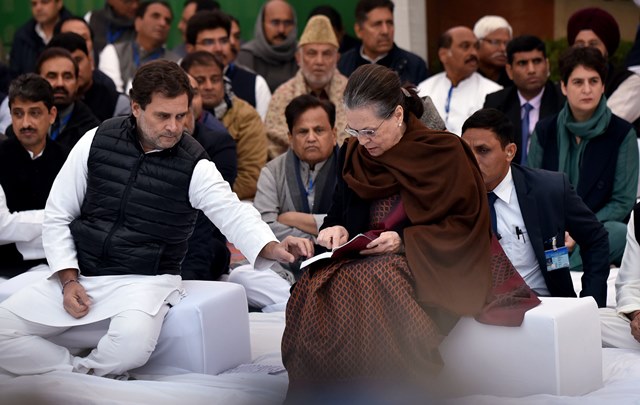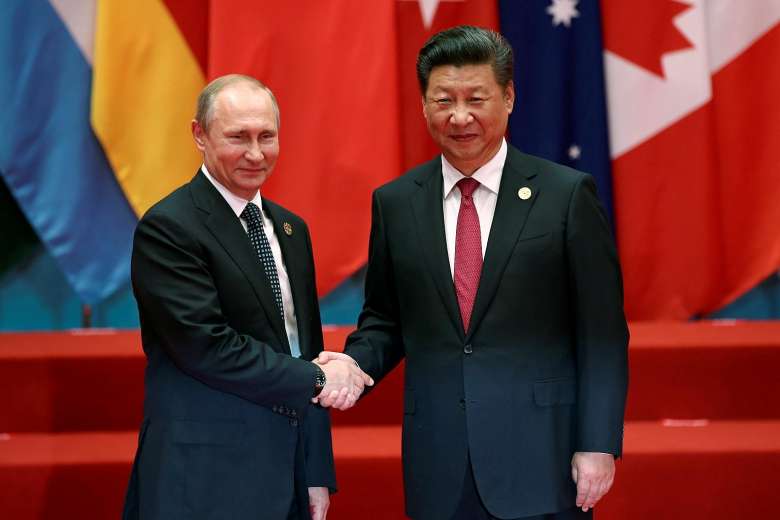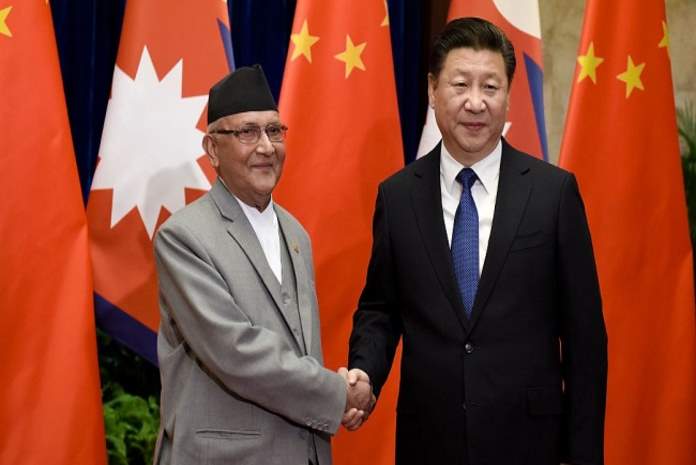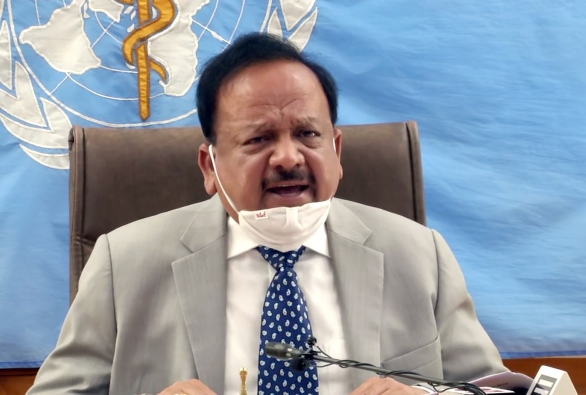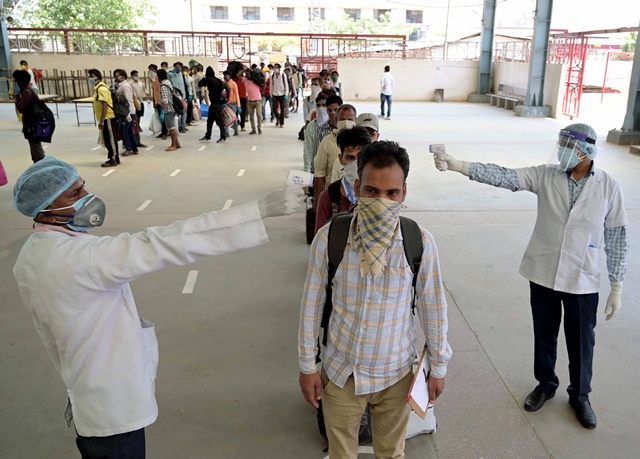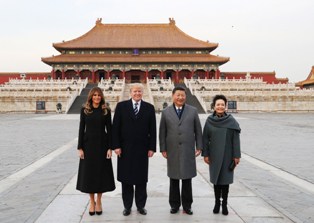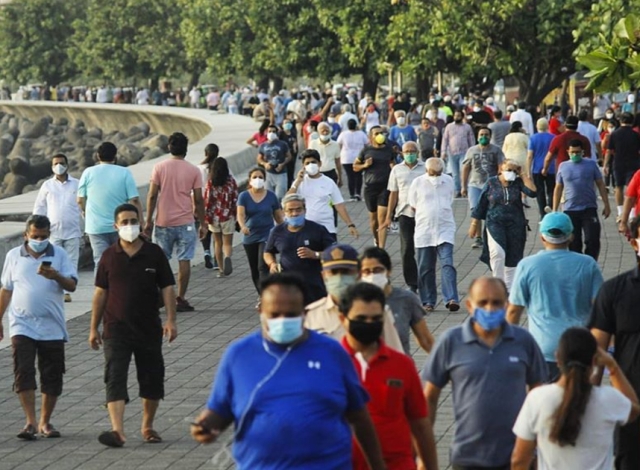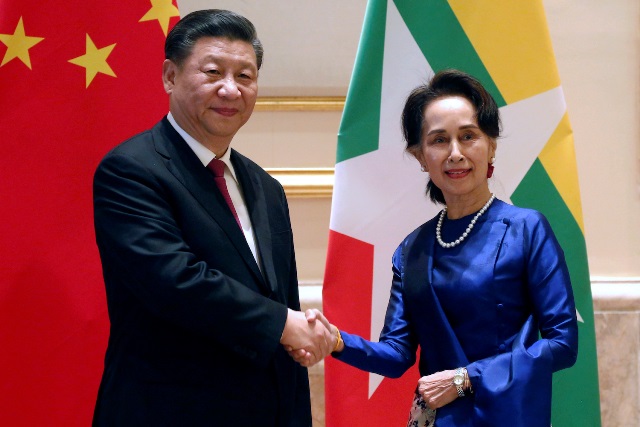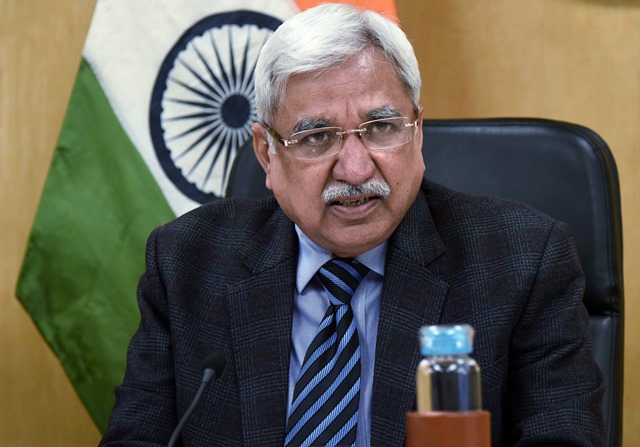Just before the Congress Working Committee (CWC) meeting is scheduled to be held on Monday, an internal dispute has emerged regarding “leadership” issues in the party.
Reportedly several senior Congress leaders have written to party interim President Sonia Gandhi raising a 5 Point Agenda to revive the Party, emphasising the need for active leadership in the party and raising questions about the party’s condition and direction, as well as demanding the election of the Congress Working Committee.
According to sources, some members of the CWC, MPs and leaders wrote a letter to Sonia Gandhi in which they have raised many questions and suggestions about the functioning of the party. It is being said that a five-page letter drafted by two senior leaders and then discussed and signed by others has not openly criticised either Sonia Gandhi or Rahul Gandhi but it is being seen as a distrust and charge sheet against the party high command, especially Rahul Gandhi.
Leader of Opposition in Rajya Sabha Ghulam Nabi Azad, Anand Sharma, Kapil Sibal, Manish Tiwari, Shashi Tharoor, Jitin Prasad, Veerappa Moily, Sandeep Dikshit, Pramod Tiwari, PJ Kurien are being named as signatories on this letter. However, none of these leaders are accepting that they are signatories to the communication. While the Congress has also denied that it has received any such letter, sources in the party said this exercise has been done from the state level where former PCC Presidents are involved.
On the condition of anonymity, a leader involved in the process told ANI that the attempt is not against the leadership of Gandhis. “The group of leaders who have written the letter do not agree on all points but the party needs to discuss the issues and leadership issue should be finalised. If Rahul Gandhi is ready to accept the party President post I will be the first person to welcome it wholeheartedly,” the leader said.
Although there may not be an official confirmation of this letter, reactions to it have started.
Reacting sharply to the media report related to the letter, Congress leader Sanjay Nirupam called it a conspiracy against Rahul Gandhi. “This letter is a new conspiracy to undermine the leadership of Rahul Gandhi. The conspiracy which used to be held in closed rooms has emerged in a letter. The only answer is, Rahul ji should leave his stubbornness of not taking up the post of President. Leave the stubbornness and save the crumbling walls of the Congress in the states. Only those can save the Congress,” he said.
There is a possibility of dispute in the CWC meeting, to be held through video conferencing at 11 am on Monday, regarding the letter written in the name of Sonia Gandhi.
At the same time, there are also indications that the demand to re-appoint Rahul Gandhi as party President may also arise in the meeting. Before the CWC meeting, Congress National Secretary Challa Vamshi Chand Reddy has written a letter to the members of the CWC, demanding that Rahul Gandhi be re-elected as the President. Earlier, in the last meeting of the CWC and after that in the meeting of the party’s MPs, there has been a demand to reassign Rahul Gandhi as party President.
According to a Congress source, there may be some important discussion about the organisation in the CWC meeting because in this meeting all 52 members have been instructed to be present “on every condition”. In the wake of the coronavirus epidemic, CWC meetings are being held through video conferencing.
Till now the ‘Zoom’ platform was used for these meetings but Monday’s meeting will be on ‘Cisco WebEx’ which is considered more secure. A test was also conducted among all CWC members on Saturday evening regarding the new platform. (ANI)
